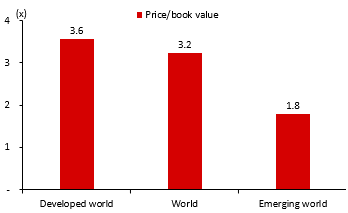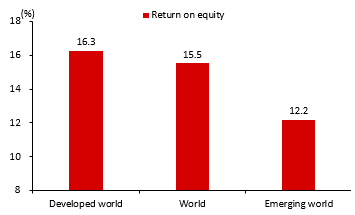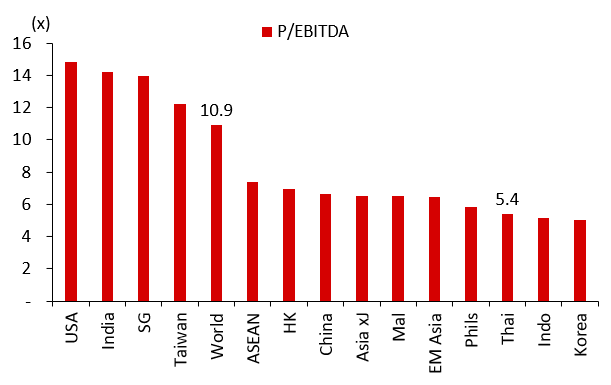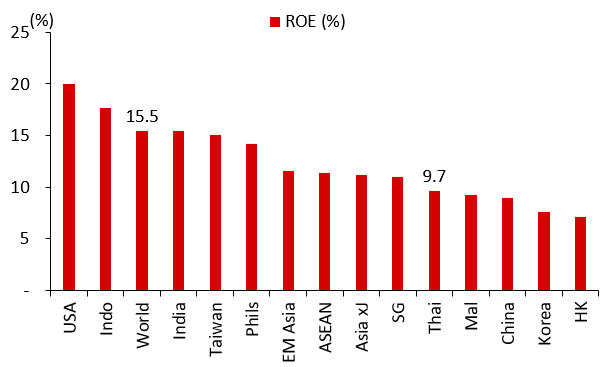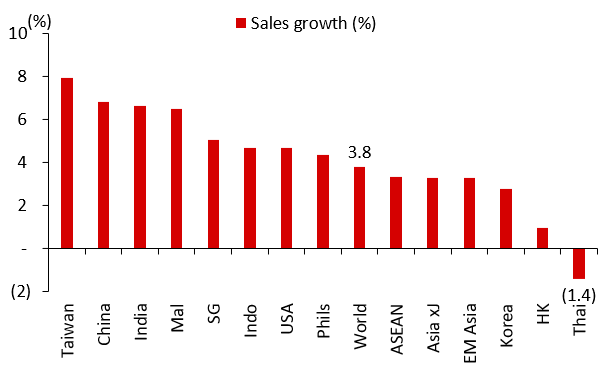Thai Stocks Must Produce Growth to Spark Interest
Developed markets are incredibly cheap these days, trading at less than 2x price-to-book value compared to 3.6x for developed markets (which are mainly comprised of the highly valued US).
The emerging world is cheap
But emerging markets are cheap for a reason. They are producing low ROEs and a net margin nearly half of the developed world. This is mainly because the developed world has experienced an incredible rise in profitability that the emerging world has not participated in.
Cheap for a reason, return on equity is low in the emerging world
On a price-to-EBITDA basis, Thailand is relatively inexpensive, at half the global average. Only Indonesia and Korea (which has been cheap for decades) are cheaper.
Thailand is cheap on a Price-to-EBITDA basis
Thailand has an underperforming return on equity, showing that the country is struggling and partially deserves its low valuation.
Relatively weak return on equity in Thailand
But the real reason why Thailand has been struggling is its lack of growth. In the chart below, I calculate the average revenue growth over the past three years and then project it forward two years. It shows the disaster that has been happening in the area of growth.
5 years average revenue growth is a disaster in Thailand
In order for Thailand to make a comeback, it is going to need to show to investors that it has figured out a way to capture growth. Of course, the market has priced this into the Thai market, so if companies can start to show growth, it could be a catalyst to cause the market to rise again!
DISCLAIMER: This content is for information purposes only. It is not intended to be investment advice. Readers should not consider statements made by the author(s) as formal recommendations and should consult their financial advisor before making any investment decisions. While the information provided is believed to be accurate, it may include errors or inaccuracies. The author(s) cannot be held liable for any actions taken as a result of reading this article.

